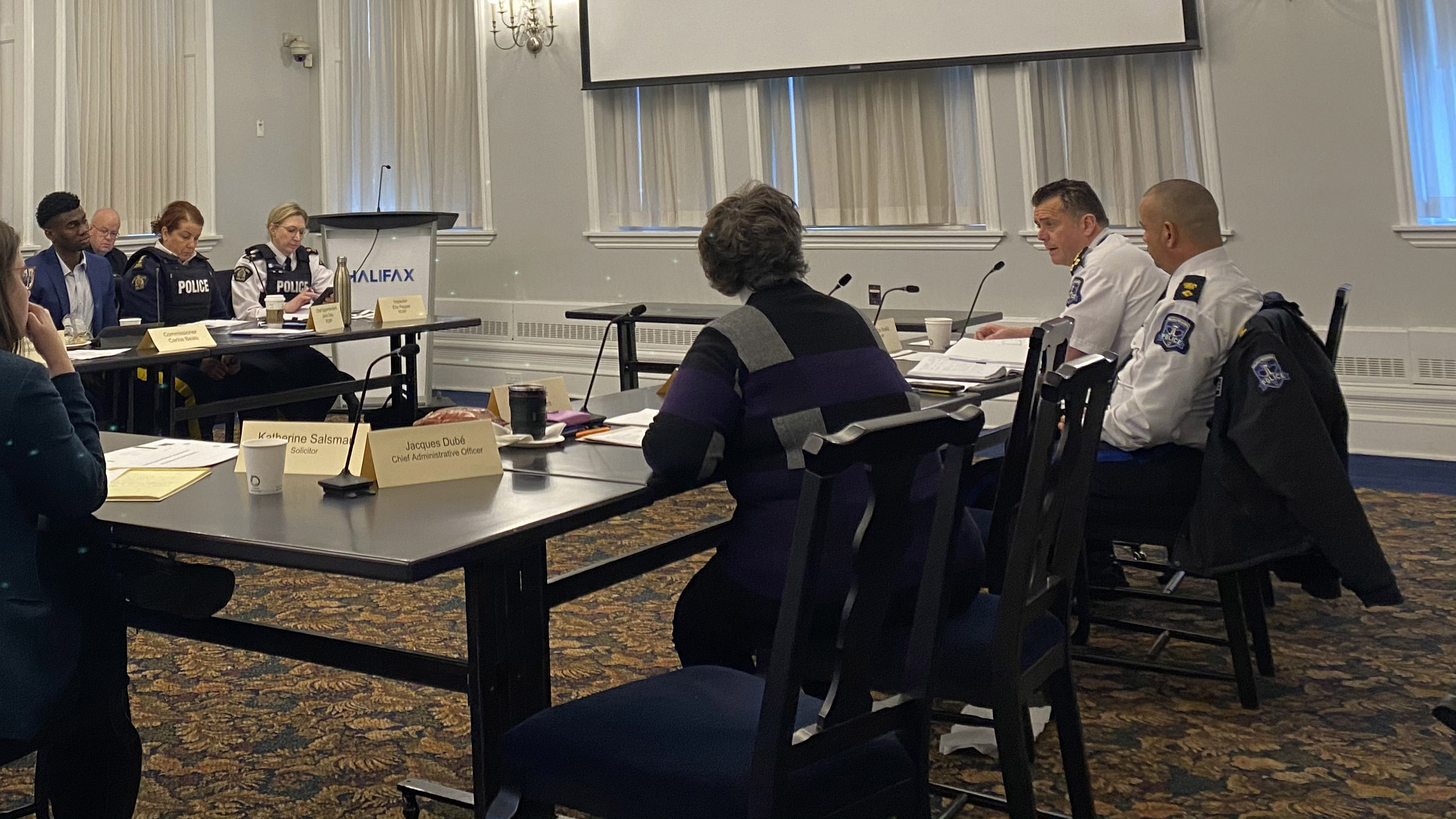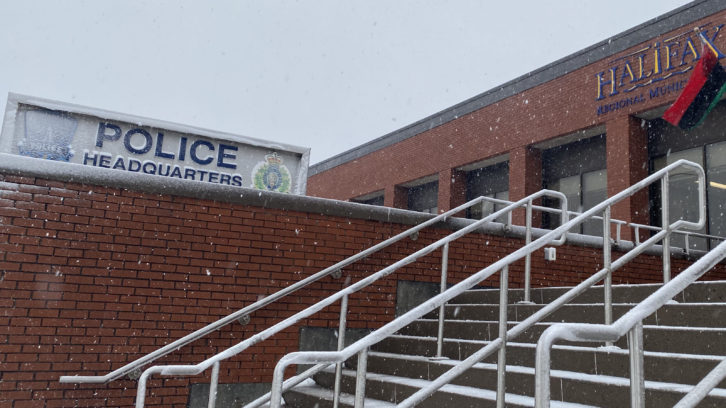Halifax Board of Police Commissioners discuss first steps to address Wortley report
Engagement sessions and surveys mark the first steps in reconciling with the black community, police chief says

caption
Members of the Halifax Board of Police Commissioners addressed Halifax Regional Police Chief Dan Kinsella about suggestions the police are taking from the Wortley report.The Halifax Board of Police Commissioners discussed the next steps to address recommendations from the 2019 Wortley report, which found black people were six times more likely to be street checked than white people.
On Monday, the board heard from Narrative Research, a research company tasked with providing the Halifax Regional Police (HRP) and RCMP a framework on how to implement the first two phases of engagement and survey suggestions from the report.
The initial phase, which is considered a “benchmarking” exercise, will consist of public engagement sessions on public perception of the police in Halifax Regional Municipality.
The second phase will be telephone and online surveys driven by the information collected from these sessions. Related stories
Margaret Chapman with Narrative Research gave the presentation. She said the surveys will be done in a “scientific fashion” to ensure the information collected reflects the opinions of Halifax residents and, more specifically, members of the African Nova Scotian community.
“We want to talk to people to see what should be included in the survey,” said Chapman.
“Once the feedback from the engagement sessions are gathered, then the input from there will be put into the second part… What we would do at the end of that is take all the feedback from the telephone and online survey to figure out what that benchmark perception is. At a later stage, we can track what changes have been made.” she said.
Coun. Lindell Smith said he would like to see community leaders mediate these engagement sessions so they can offer as much knowledge as possible, even if that means increasing the budget.
“I think it would be very important during those (engagement) sessions to have somebody from those communities … to help facilitate the discussion. If that is something we can look at, to hire someone in the community to do that work, I think it would be very important,” said Smith.

caption
Halifax police say they have turned off the feature on their policing software, which enabled input of data from street checksDuring her presentation Chapman said the needs of HRM residents differ so much, there could be 100 different engagement sessions.
They recommend the city hold a number of small venue sessions so they can be accessible to all residents. The survey questions will be shaped so they can be addressed and acted upon.
HRP Chief Dan Kinsella said they have been adopting recommendations from the Wortley report since its release last April. He said the Versadex program, which police use to input information from crimes, no longer allows officers to log data from street checks.
“We actually set the function off that records street check data, since that time we have not been able to put any data in there,” he said.
Kinsella said the program now only allows officers to input data on other interactions, like traffic violations and crimes.
Kinsella said “the evaluation will be paramount and the important part” of the process of addressing the report’s recommendations, and he would like to see the trust between the police and African Nova Scotia community grow.
“I would like to build public trust between the police and the African Nova Scotia community, actually all of our communities,” he said. “Just in a general sense, I want to build the relationship, I want to make things better.”
In the meantime, he said the public can access information about themselves collected by HRP and the RCMP by request.
“If there is someone out there that feels that we have some data on them and they would like to know what that data is and how it relates … I would encourage anyone that wants to gather that information to reach out and contact us and we’ll make that happen,” said Kinsella.
Residents who want access to information that may have been collected on them can contact the police by telephone or go to their website.
About the author
Adam McNamara
Adam McNamara is a journalist in Halifax, Nova Scotia. He has a passion for telling stories and informing the public on healthcare, education,...
